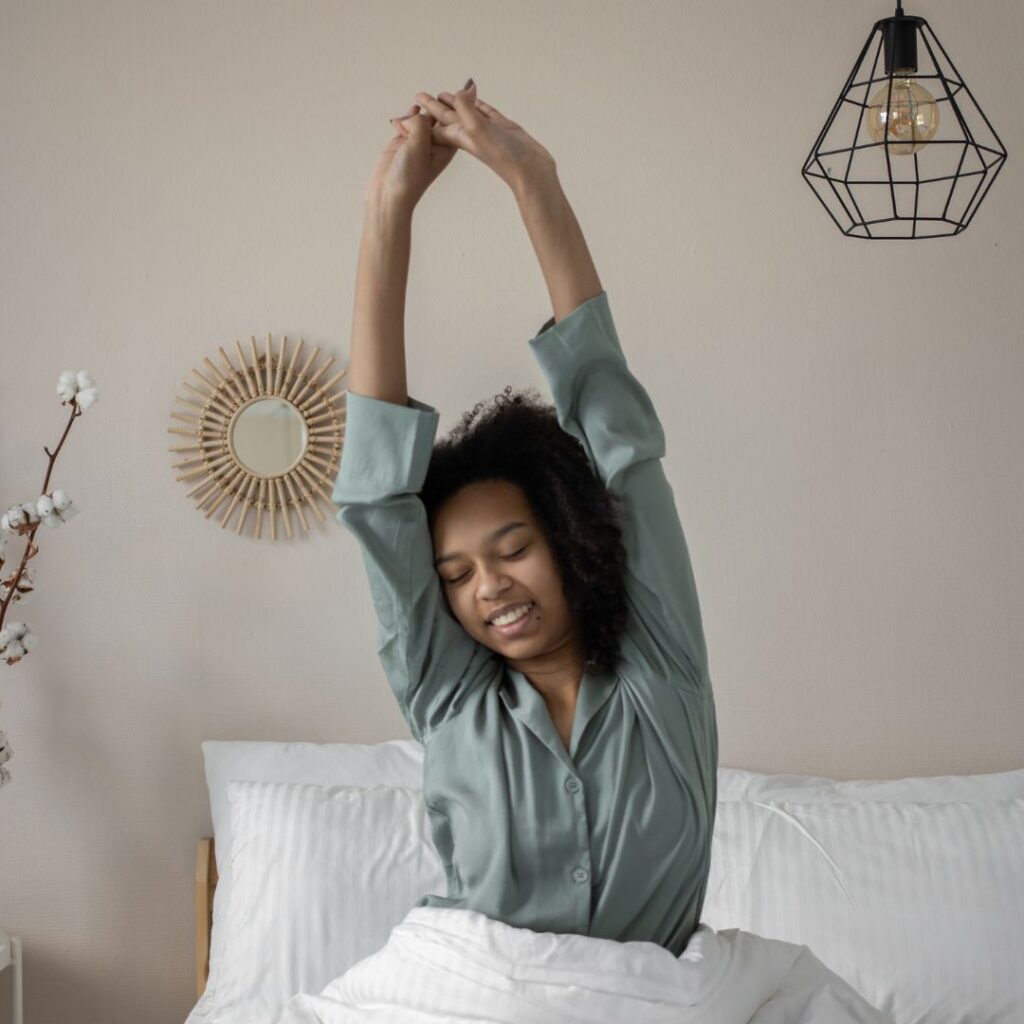Why Sleep Isn’t Optional (Even if You Think You’re Too Busy)
May 14, 2025

Let’s get one thing straight: sleep isn’t a luxury—it’s a non-negotiable part of living well. We all know the drill: one more episode, another scroll through Instagram, or just one last email before bed. But here’s the wild part—the quality of your entire waking life hinges on what happens when you’re asleep.
Yep, while you’re off dreaming, your body is low-key working overtime.
And if you need a little science-backed reality check, this resource from the NIH breaks down just how serious sleep deprivation really is.
Sleep: The Original Life Hack
Sleeping keeps your brain sharp, your body strong, and your emotions somewhat sane. It helps:
- Boost memory and learning
- Repair muscles and tissues
- Regulate your immune system
- Keep your mood and mental health in check
And in kids and teens? It literally fuels growth and development.
(Still think you are getting enough sleep? You might want to think again. Check out this post for more.)
So… What’s Actually Happening in There?
Your body cycles through several phases of sleep. First, it dips into deeper and deeper relaxation (called NREM sleep). Then it hits REM sleep (rapid eye movement), the one with all the weird dreams and rapid eye movements (hence the name). This is when your brain gets extra active—almost like it’s awake—but your body temporarily paralyzes itself to keep you from acting out those dreams.
Your sleep stages cycle multiple times a night. The longer you sleep, the longer your REM phases get—which is where most of the memory magic happens.
Enter: Your Biological Clock
No, not the one that ticks louder on your birthday. I’m talking about your circadian rhythm—your internal 24-hour timer that tells you when to feel sleepy or alert.
This rhythm is synced up with sunlight. When the sun goes down, your brain releases melatonin (a hormone that makes you feel sleepy). But here’s the kicker: artificial light—especially from screens—confuses the heck out of your brain. Your body thinks it’s still daytime, and your melatonin gets delayed. Hello, midnight Netflix binge.
The Problem with Modern Life
Let’s face it—our world is not set up for healthy sleep. We:
- Work late or on rotating shifts
- Scroll on blue-lit screens before bed
- Use alarms instead of our natural wake-up cues
- Travel across time zones
- Drink too much caffeine (we see you, 3PM espresso)
Even your commute or your gym time can push your bedtime later. And here’s the shocking part—a few nights of short sleep add up fast.
Sleep Debt Is a Thing—and It’s Expensive
Say you sleep 5 hours a night for a week. You might think you can crash all weekend to “make up for it.” But studies show that even three full nights of normal sleep don’t fully recover your brain’s performance.
In one experiment, people who slept just 3 to 5 hours a night showed slower reaction times, poor attention, and more “microsleeps”—those scary moments where your brain checks out for a few seconds without you realizing. Yes, even while driving. 😬
Owls vs Larks (And Why Owls Are Getting Screwed)
We all have a chronotype—some of us are morning people (larks) and others are night owls. Night owls naturally feel more alert in the evening and fall asleep later.
But modern life favors larks. That means night owls are constantly fighting their biology, relying on alarms to wake up early and racking up sleep debt all week. This mismatch between your natural rhythm and your social obligations? It’s called social jet lag. And it’s real.
Sleep = Brain Gains
Still need convincing?
- A short nap (even just 6 minutes!) can boost memory.
- REM sleep helps lock in what you’ve learned—even emotional memories.
- Sleep helps your brain clear out waste and repair itself.
- One study found that people “replayed” tasks in their brains during sleep, like a video game continuing in their mind. Wild.
And the benefits don’t stop with memory. Healthy sleep helps regulate emotions, boost creativity, and reduce risk of anxiety and depression.
TL;DR – Here’s Your Sleep Checklist
✅ Aim for 7–9 hours a night (yes, even you. Don’t believe it? Read this post. )
✅ Turn off screens an hour before bed
✅ Stick to a regular sleep/wake schedule—even on weekends
✅ Get some sunlight during the day to regulate your circadian rhythm
✅ Create a calming nighttime routine (try journaling, a warm shower, or meditation)
✅ Don’t try to “catch up” on weekends—it doesn’t fully work
Sleeping isn’t for the weak. It’s for the well-rested, emotionally stable, high-performing, memory-boosting humans we all want to be. So next time you think you can skimp on sleep, remember: your brain’s got work to do—and you’re not doing it any favors by staying up.
[…] Not convinced you need more sleep? Read this post. […]